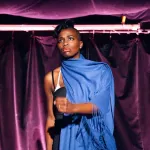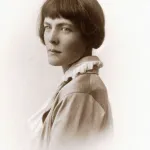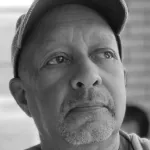Sometimes we are led through the doorway
by a child, sometimes
by a stranger, always a matter of grace changing
the past, for if there is anything we must change
it is the past. To look back
and see another map.
Love enough to fill
a shoe, a suitcase, a bit of ink,
a painting, a child’s eyes at a chalkboard,
a bit of chalk, a bit of
bone in ash.
All that is cupped,
all that is emptied
the rush of water from a pump,
a word spelled out
on a palm.
Anne Michaels challenges us to find new maps to think about old experiences.
- In Roman mythology, the god Janus was often depicted as having two faces that point in opposite directions, one looking forward, the other backward. Janus was associated with doorways, passages, and transitions. What is the doorway that the speaker references in the opening line?
- The speaker states that we must “change” the “past.” We are not time-travellers (yet!) and cannot go back in time to change things that have already occurred, so how might a poem create a different “map” of the past, a way to change our perception of past events?
- In the second stanza we see a list of physical objects. What do the objects have in common? How are they different?
- What might the final item in the list — “A bit of / bone in ash” — tell us? Consider the Holocaust imagery in Sylvia Plath’s famous poem “Lady Lazarus,” specifically the following lines: “Ash, ash— / You poke and stir. / Flesh, bone, there is nothing there.” How does our understanding of Michaels’ poem change if we think about it in relation to the Holocaust?
- “From Correspondences” ends with “a word spelled out / on a palm,” and hands are referenced in the previous stanza. Try to read the poem while thinking about your hands, the way your fingers bend, the feeling of your own skin. Integrate an awareness of your own hands into your recitation of this visceral, physical poem.
- Write down a list of physical objects that hold special meaning for you. How do they make you feel? What do those physical objects tell you about what makes you happy? What do they tell you about what makes you sad? Do any of the objects make you both happy and sad? Describe the objects. Try to write a short poem from the perspective of one of the objects.
Useful Links
Poet Anne Michaels’ reads from her book Correspondences, which was written as an elegy for her father: https://www.youtube.com/watch?v=zo-mSDvX-9o
Excerpt from Correspondences. Text Copyright © 2013 by Anne Michaels. Reprinted by permission of the publisher.
Source: Correspondences (McClelland & Stewart, 2013)





